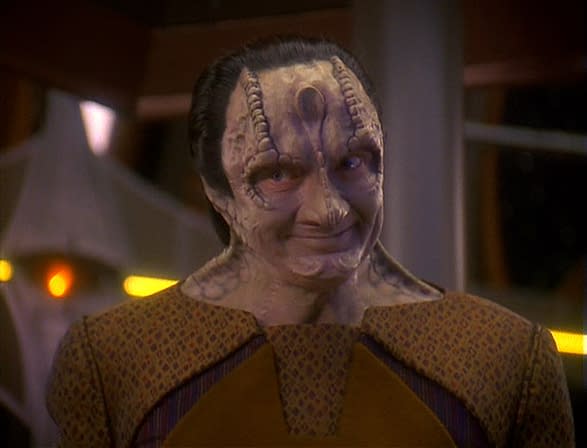NYT gift article expires in 30 days.
I will just say it has always been an observation that degrees in humanities and the social sciences augment math and acience and help us understand ourselves and the world. We need more imagination and introspection from the liberal arts so that we can implement the ideas in real life with nore technical math and science degrees.
This is so true. Although not popular with people in my field (Computer Science), I highly value my liberal arts and humanities education. Far from being “worthless mandatory classes” (like many in my major believed), I found thee classes to be the most enlightening. I learned to wield algorithms and build software in my major, but I learned why I should and how to think critically about how to do it to best serve people (not to mention just simple communication). If anything, there should be more liberal arts in the curriculum, not less.
Cutting the arts because they’re too liberal in the name of profits at a public institution. Reeks of the Stephen Colbert (the character) quote: “Reality has a well-known liberal bias”.
The Democratic party has lost the working class
What a colossal failure in marketing that is. Of the two parties, the Democrats do far more for the working class than the Republicans. The Democrats failure to attract the party that they directly benefit leads to questions about their ability in other areas. The Republicans have long been the party for the benefit of the rich.
The article also states that they want to cut liberal arts programs due to budgetary issues. The price of college tuition is 134-600% more than it was 20 years ago. Something is seriously wrong if they still can’t pull a profit on paper.
And how much is the athletics program bringing in vs. spending? That’s always my first question. The article isn’t specific, but it implies that it’s in the red.
It is. A lot.
Total expenses for Mountaineer sports exceeded revenue from ticket sales, rights and licensing arrangements, bowl games and investment income by $18 million in 2020, $19 million in 2021 and $15 million in 2022.
It’s a bit dated now, but the NCAA even says sports are money losers. https://www.ncaa.org/news/2014/8/20/growth-in-division-i-athletics-expenses-outpaces-revenue-increases.aspx
Just what we need more of in this state… brain drain…
Although I generally agree with the premise of the article, I don’t think the author does himself any favors when he points out many perfectly legitimate reasons that the cuts are happening (documented declining enrollment in humanities, a history of financial planning issues that affect all WVU budgets, humanities making up a minority of cuts, etc).
Are the humanities being cut due to political or ideological pressure? What is the actual evidence that the cuts are ideological in origin? After presenting lots of specifics around finances, the author is curiously nonspecific on that point.
Controversial opinion incoming: two things can be true at once: state legislatures are woefully underfunding public higher education and need to boost support, AND, in the meantime every state institution doesn’t need a full roster of humanities departments filled with tenure track faculty when enrollment is just not justifying the cost … and other departments with lots of undergraduate and graduate students to teach have to suffer to keep them afloat.
I mean, I’m not saying the author is wrong, but they don’t even point to a hot mic confession or a conservative e-mail that says “we need to scale back humanities at public universities, because it’s teaching our kids the wrong things”.
The idea that Republicans are specifically targeting liberal arts academics sounds truthy, and on brand for them, certainly. But it would be nice to see more evidence than angry assertion.
Conservatives do love their (fellow) low-education voters…
Article Text:
In proposing last week to eliminate 169 faculty positions and cut more than 30 degree programs from its flagship university, West Virginia, the state with the fourth-highest poverty rate in the country, is engaging in a kind of educational gerrymandering. If you’re a West Virginian with plans to attend West Virginia University, be prepared to find yourself cut out of much of the best education that the school has traditionally offered, and many of the most basic parts of the education offered by comparable universities.
The planned cuts include the school’s program of world languages and literatures, along with graduate programs in mathematics and other degrees across the arts and pre-professional programs. The university is deciding, in effect, that certain citizens don’t get access to a liberal arts education.
Sadly, this is not just a local story. Politicians and state officials, often with the help of management consultants, are making liberal arts education scarce in some of the poorest states in the union. This trend, typically led by Republican-controlled legislatures and often masquerading as budgetary necessity, threatens to have dire long-term effects on our already polarized and divided nation.
Administrators at West Virginia University devised the plan to restructure the school with the help of a consulting company called rpk Group, which also works with the Universities of Missouri, Kansas and Virginia, among other schools. The stated purpose of the proposal is to address an expected decline in student enrollment at the school that will create a projected $45 million budget deficit.
But the projected deficit is the result of overly aggressive planning more than it is a financial liability created by the humanities. E. Gordon Gee, the president of West Virginia University, once promised that the school would have 40,000 students by 2020, but the figure is still well under 30,000 across three campuses and is projected to drop. Mr. Gee is now covering up his own failures at the expense of his state’s citizens, instead of putting his efforts toward recruiting and obtaining donor money to fund a broad education for West Virginians.
What’s more, cutting humanities programs — which make up a sizable minority of the majors slated to be cut, alongside pre-professional and technical programs — is not necessarily the best way to save money. There is substantial evidence that humanities departments, unlike a majority of college athletics programs, often break even (and some may even subsidize the sciences). In defense of its proposed cuts, West Virginia University has cited declining interest in some of its humanities programs, but the absolute number of students enrolled is not the only measure of a department’s value.
The finances aren’t the point, anyway. The humanities are under threat more broadly across the nation because of the perceived left-wing ideology of the liberal arts. Book bans, attempts to undermine diversity efforts and remodeled school curriculums that teach that slavery was about “skill” development are part of a larger coordinated assault on the supposed “cultural Marxism” of the humanities. (That absurd idea rests in part on an antisemitic fantasy in which left-leaning philosophers like Theodor Adorno and Herbert Marcuse somehow took control of American culture after the Second World War.) To resist this assault, we must provide broad access to a true liberal arts education.
The campaign to overturn the liberal arts is politically motivated, through and through. The Democratic Party has lost the working class, while the Republican Party has made electoral gains among the least educated. With the help of consultants, Republicans seek to gut the (nonprofit or public) university in the name of a “profit” it doesn’t even intend to deliver. The point instead is to divide the electorate, and higher education is the tool.
I grew up in rural upstate New York. I was lucky: My parents put a liberal arts education above all other goals. But I know what it looks like when people are told they can’t have nice things, and it’s ugly. Taking liberal arts education away from the least privileged — implying that they are future laborers and nothing else — helps ensure that they develop a resentment of “elites.” That’s an animus whose political consequences should be uncomfortably familiar by now.
The resentment fostered by cuts like those at West Virginia University won’t be aimed at the true culprits. The long-term effect will be bitterness toward those who have access to the liberal arts education that remains on offer in many blue states and at elite universities — what the scholar Lisa Corrigan calls a “two-tier educational system.” This outcome is likely to fortify many Republican voting strongholds.
Democratic politicians need to fight back in these culture wars, defending the humanities (rather than disparaging them) and loudly dissenting from the view that education is just job training. College presidents like Mr. Gee should promote and recruit rather than cutting and running. An unholy alliance of far-right ideology and mercenary venture capitalists has politicized the classroom. We must reject their vision of America and insist that a liberal arts education accessible to more than just the elite is one of the great foundations of a democracy.









